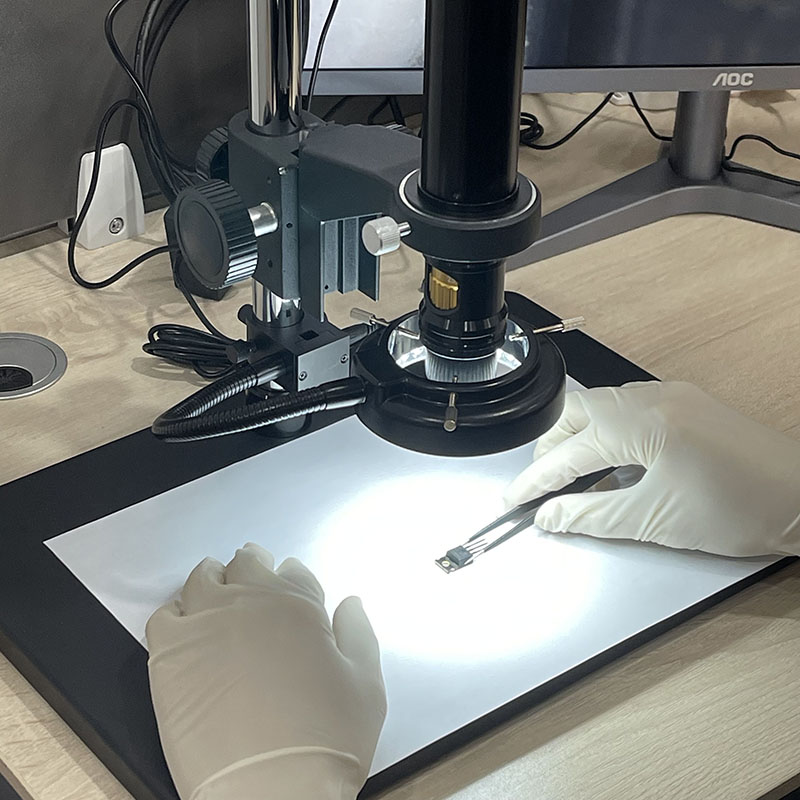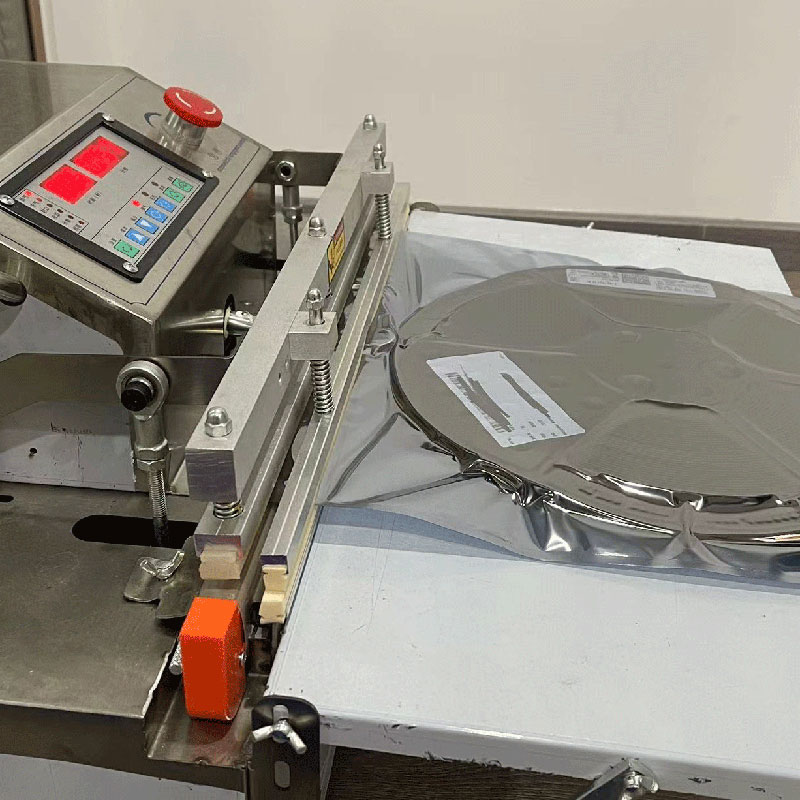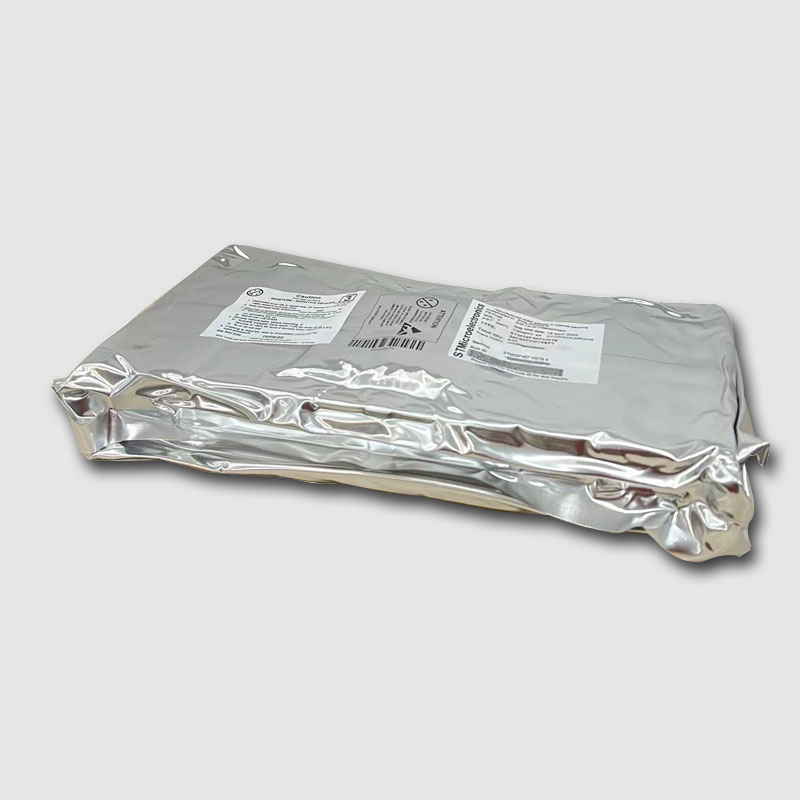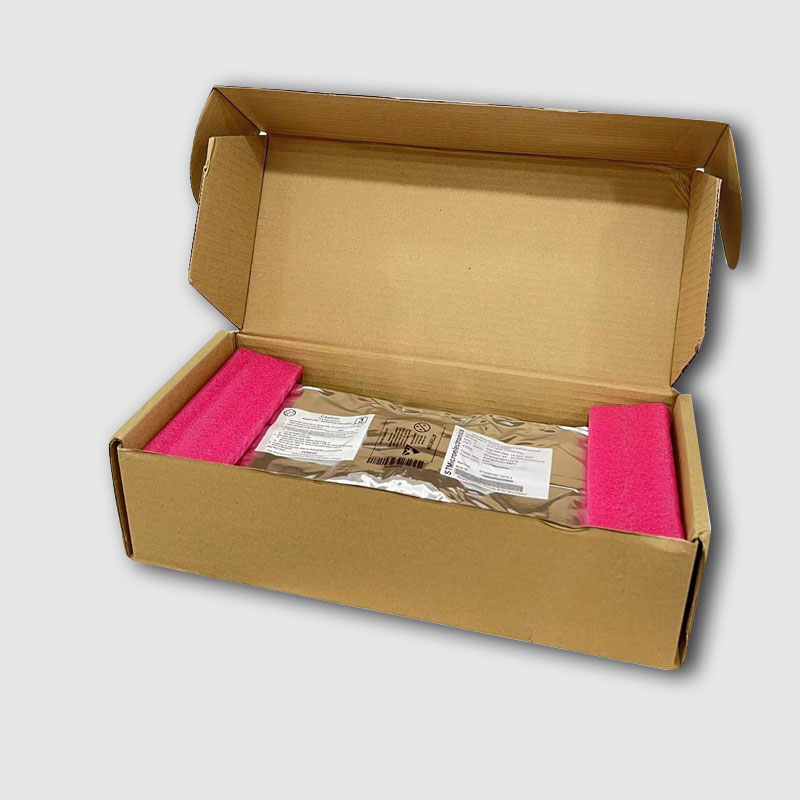XC2C384-10PQG208I
- Part Number: XC2C384-10PQG208I
- Categories:
- Manufacturer: Xilinx
- MOQ: 1PCS
- In Stock: 31177
- Datasheet:
- Description: IC CPLD 384MC 9.2NS 208QFP
- Payment method: Paypal/Wire transfer/Visa
- Delivery Method: UPS/DHL/FEDEX/EMS
- 1 Pcs$49.668
- 10 Pcs$47.303
- 100 Pcs$45.051
- 1000 Pcs$44.167
- 10000 Pcs$44.167
| Manufacturer | Xilinx |
| Mounting Type | Surface Mount |
| Number of I/O | 173 |
| Package / Case | 208-BFQFP |
| Product Status | Obsolete |
| Number of Gates | 9000 |
| Programmable Type | In System Programmable |
| Number of Macrocells | 384 |
| Delay Time tpd(1) Max | 9.2 ns |
| Operating Temperature | -40°C ~ 85°C (TA) |
| Supplier Device Package | 208-PQFP (28x28) |
| Voltage Supply - Internal | 1.7V ~ 1.9V |
| Number of Logic Elements/Blocks | 24 |
XC2C384-10PQG208I FPGAs Overview
The XC2C384-10PQG208I device is designed for both high performance and low power applications. This lends power savings to high-end communication equipment and high speed to battery operated devices. Due to the low power stand-by and dynamic operation, overall system reliability is improved.
This XC2C384-10PQG208I device consists of eight Function Blocks inter-connected by a low power Advanced Interconnect Matrix (AIM). The AIM feeds 40 true and complement inputs to each Function Block. The Function Blocks consist of a 40 by 56 P-term PLA and 16 macrocells which contain numerous configuration bits that allow for combinational or registered modes of operation.
Additionally, these registers can be globally reset or preset and configured as a D or T flip-flop or as a D latch. There are also multiple clock signals, both global and local product term types, configured on a per macrocell basis. Output pin configurations include slew rate limit, bus hold, pull-up, open drain and programmable grounds. A Schmitt-trigger input is available on a per input pin basis. In addition to storing macrocell output states, the macrocell registers may be configured as direct input registers to store signals directly from input pins.
Clocking is available on a global or Function Block basis. Three global clocks are available for all Function Blocks as a synchronous clock source. Macrocell registers can be individually configured to power up to the zero or one state. A global set/reset control line is also available to asynchronously set or reset selected registers during operation. Additional local clock, synchronous clock-enable, asynchronous set/reset and output enable signals can be formed using product terms on a per-macrocell or per-Function Block basis.
A DualEDGE flip-flop feature is also available on a per macrocell basis. This feature allows high performance synchronous operation based on lower frequency clocking to help reduce the total power consumption of the device.The CoolRunner-II 128 macrocell CPLD is I/O compatible with various JEDEC I/O standards. This device is also 1.5V I/O compatible with the use of Schmitt-trigger inputs.
Circuitry has also been included to divide one externally supplied global clock (GCK2) by eight different selections. This yields divide by even and odd clock frequencies.
The use of the clock divide (division by 2) and DualEDGE flip-flop gives the resultant CoolCLOCK feature
DataGATE is a method to selectively disable inputs of the CPLD that are not of interest during certain points in time.
By mapping a signal to the DataGATE function, lower power can be achieved due to reduction in signal switching.
Another feature that eases voltage translation is I/O banking. Two I/O banks are available on the XC2C384-10PQG208I device that permit easy interfacing to 3.3V, 2.5V, 1.8V, and 1.5V devices.
Features
• In-System Programmable PROMs for Configuration of Xilinx FPGAs
• Low-Power Advanced CMOS NOR Flash Process
• Endurance of 20,000 Program/Erase Cycles
• IEEE Standard 1149.1/1532 Boundary-Scan (JTAG) Support for Programming, Prototyping, and Testing
• JTAG Command Initiation of Standard FPGA Configuration
• Operation over Full Industrial Temperature Range (–40°C to +85°C)
 step1: Inspect Products
step1: Inspect Products step2: Vacuum Packaging
step2: Vacuum Packaging step3: Anti-Static Bag
step3: Anti-Static Bag step4: Individual Packing
step4: Individual Packing step5: Packing Box
step5: Packing Box step6:Shipping Tag
step6:Shipping Tag

- Before shipping, we will inspect the parts to ensure it in good condition and check that the parts are brand-new and original with the datasheet. And then, all the products will be packed in an anti-static bag.
- After ensuring that there are no issues with any of the goods after packing, we will wrap them carefully and send them by international express. It demonstrates exceptional seal integrity, outstanding tear and puncture resistance, and both.

Xilinx is a leading provider of programmable logic devices and associated technologies. As a top producer of programmable FPGAs, SoCs, MPSoCs, and 3D ICs, Xilinx has expanded quickly. Software defined and hardware optimized applications are supported by Xilinx, advancing the fields of cloud computing, SDN/NFV, video/vision, industrial IoT, and 5G wireless.
One of Xilinx's key innovations is the development of the Xilinx Vivado Design Suite, a comprehensive software toolchain used for designing and programming their FPGAs and SoCs. This suite provides developers with the necessary tools to create, simulate, and implement their designs on Xilinx devices.
In October 2020, Xilinx was acquired by Advanced Micro Devices (AMD), a major player in the semiconductor industry. This acquisition has enabled AMD to enhance its product portfolio and expand its offerings into the rapidly growing FPGA market.
- Ultra-low power consumption of STM32U575/585 microcontrollers(MCU)
- The STM32U575/585 microcontrollers (MCU) are based on the high-performance Arm 32-bit Cortex‑M33CPU with Arm TrustZone and FPU.
- TI(Texas Instruments)Advanced Ultrasonic Lens Cleaning Chipset Enables Self-Cleaning Cameras and Sensors
- Computer vision and advanced imaging have enabled many revolutionary technologies, one of the most important being Advanced Driver Assistance Systems (ADAS) and autonomous vehicles.
- The Best Guide to Transistor
- The transistor is electronic equipment. It is made through a p and n-type semiconductor. When a semiconductor is placed in the center between the same type of semiconductors the arrangement is called transistors.
- Electronic Component Symbols: Resistor, Capacitor, Transformers and Connectors
- Electronic components are components of electronic components and small machines and instruments. They are often composed of several parts and can be used in similar products.
- Basic Information about Temperature Sensor
- A temperature transducer is a sensor that can sense temperature and convert it into a usable output signal. The temperature sensor is the core part of the temperature measuring instrument, and there are many varieties. After entering the 21st century, temperature sensors are rapidly developing towards high-tech directions such as high precision, multi-function, bus standardization, high reliability and safety, development of virtual sensors and network sensors, and development of single-chip temperature measurement systems. The bus technology of the temperature sensor has also been standardized, and it can be used as a slave to communicate with the host through a dedicated bus interface. According to the measurement method, it can be divided into two categories: a contact type and a non-contact type. According to the characteristics of sensor materials and electronic components, it can be divided into two types: thermal resistance and thermocouple. Main Category The detection part of the contact temperature sensor is in good contact with the measured object, also known as a thermometer. The thermometer achieves heat balance through conduction or convection so that the indication value of the thermometer can directly represent the temperature of the measured object. Generally, the measurement accuracy is high. Within a certain temperature range, the thermometer can also measure the temperature distribution inside the object. However, large measurement errors will occur for moving bodies, small targets, or objects with small heat capacity. Commonly used thermometers include bimetallic thermometers, liquid-in-glass thermometers, pressure thermometers, resistance thermometers, thermistors, and thermocouples. They are widely used in industry, agriculture, commerce, and other sectors. People also often use these thermometers in daily life. With the wide application of cryogenic technology in national defense engineering, space technology, metallurgy, electronics, food, medicine, petrochemical, and other departments and the research of superconducting technology, cryogenic thermometers for measuring temperatures below 120K have been developed, such as cryogenic gas thermometers, steam Pressure thermometers, acoustic thermometers, paramagnetic salt thermometers, quantum thermometers, low-temperature thermal resistance, and low-temperature thermocouples, etc. Cryogenic thermometers require small temperature sensing elements, high accuracy, good reproducibility, and stability. The carburized glass thermal resistance made of porous high silica glass carburized and sintered is a kind of temperature sensing element of the low-temperature thermometer, which can be used to measure the temperature in the range of 1.6 ~ 300K. Its sensitive components are not in contact with the measured object, also known as a non-contact temperature measuring instrument. This instrument can be used to measure the surface temperature of moving objects, small targets, and objects with small heat capacity or rapid temperature changes (transient), and can also be used to measure the temperature distribution of the temperature field. The most commonly used non-contact thermometers are based on the fundamental law of black body radiation and are called radiation thermometers. Radiation thermometry methods include the brightness method (see optical pyrometer), radiation method (see radiation pyrometer), and colorimetric method (see colorimetric thermometer). All kinds of radiation temperature measurement methods can only measure the corresponding photometric temperature, radiation temperature, or colorimetric temperature. Only the temperature measured for a black body (an object that absorbs all radiation and does not reflect light) is the true temperature. If you want to measure the real temperature of the object, you must correct the surface emissivity of the material. However, the surface emissivity of materials depends not only on temperature and wavelength, but also on surface state, coating film, and microstructure, so it is difficult to measure accurately. In automatic production, it is often necessary to use radiation thermometry to measure or control the surface temperature of certain objects, such as the steel strip rolling temperature, roll temperature, forging temperature in metallurgy, and the temperature of various molten metals in smelting furnaces or crucibles. In these specific cases, the measurement of the emissivity of an object's surface is quite difficult. For automatic measurement and control of solid surface temperature, an additional reflector can be used to form a black body cavity together with the measured surface. The effect of additional radiation can increase the effective radiation and effective emissivity of the measured surface. Use the effective emissivity coefficient to correct the measured temperature through the instrument, and finally get the real temperature of the measured surface. The most typical additional mirror is hemispherical. The diffuse radiation on the measured surface near the center of the sphere can be reflected on the surface by the hemispherical mirror to form additional radiation, thereby increasing the effective emissivity coefficient. In the formula, ε is the surface emissivity of the material, and ρ is the reflectivity of the mirror. As for the radiation measurement of the real temperature of the gas and liquid medium, the method of inserting the heat-resistant material tube to a certain depth to form a black body cavity can be used. The effective emission coefficient of the cylinder cavity after reaching thermal equilibrium with the medium is obtained by calculation. In automatic measurement and control, this value can be used to correct the measured cavity bottom temperature (ie medium temperature) to obtain the real temperature of the medium. Advantages of non-contact temperature measurement: the upper limit of measurement is not limited by the temperature resistance of the temperature sensing element, so there is no limit to the maximum measurable temperature in principle. For high temperatures above 1800°C, non-contact temperature measurement methods are mainly used. With the development of infrared technology, radiation temperature measurement has gradually expanded from visible light to infrared and has been used below 700°C to room temperature with high resolution. Working principle Metals undergo a corresponding extension when the ambient temperature changes, so the sensor can signal this response in different ways. Bimetal Sensor A bimetal sheet is composed of two pieces of metal with different expansion coefficients attached. As the temperature changes, material A expands more than the other metal, causing the metal sheet to bend. The curvature of the bend can be converted into an output signal. Bimetal Rod and Tube Sensors As the temperature increases, the length of the metal tube (material A) increases, while the length of the non-expanding steel rod (metal B) does not increase so that the linear expansion of the metal tube can be transmitted due to the change of position. In turn, this linear expansion can be translated into an output signal. Deformation Curve Design Sensors for Liquids and Gases When the temperature changes, liquids, and gases will also produce corresponding changes in volume. Various types of structures can convert this change in expansion into a change in position, thus producing a position change output (potentiometer, sense bias, baffle, etc.). Resistance sensing As the temperature of the metal changes, its resistance value also changes. For different metals, every time the temperature changes by one degree, the resistance value changes differently, and the resistance value can be directly used as an output signal. There are two types of changes in resistance positive temperature coefficient Increased temperature = increased resistance A decrease in temperature = a decrease in resistance negative temperature coefficient Increased temperature = decreased resistance Decrease in temperature = increase in resistance Thermocouple Sensing A thermocouple consists of two metal wires of different materials welded together at the ends. Then measure the ambient temperature of the non-heating part, and the temperature of the heating point can be accurately known. Since it must have two conductors of different materials, it is called a thermocouple. Thermocouples made of different materials are used in different temperature ranges, and their sensitivities also vary. The sensitivity of the thermocouple refers to the change in the output potential difference when the temperature of the heating point changes by 1 °C. For most thermocouples supported by metallic materials, this value is between 5 and 40 microvolts/°C. Since the sensitivity of the thermocouple temperature sensor has nothing to do with the thickness of the material, it can also be made into a temperature sensor with very thin materials. Also due to the good ductility of the metal material used to make thermocouples, this tiny temperature-measuring element has a very high response speed and can measure rapidly changing processes. Selection method If you want to make reliable temperature measurements, you first need to choose the correct temperature instrument, that is, the temperature sensor. Among them, thermocouples, thermistors, platinum resistance thermometers (RTDs), and temperature ICs are the most commonly used temperature sensors in testing. The following is an introduction to the characteristics of the thermocouple and thermistor temperature instruments. thermocouple Thermocouples are the most commonly used temperature sensors in temperature measurement. Its main advantages are a wide temperature range and adaptability to various atmospheric environments, and it is strong, low in price, does not require a power supply, and is the cheapest. A thermocouple consists of two wires of dissimilar metals (metal A and metal B) connected at one end. When one end of the thermocouple is heated, there is a potential difference in the thermocouple circuit. The temperature can be calculated from the measured potential difference. However, there is a nonlinear relationship between voltage and temperature. Since the temperature is a nonlinear relationship between voltage and temperature, it is necessary to make a second measurement for the reference temperature (Tref), and use the test equipment software or hardware to process the voltage-temperature conversion inside the instrument, to Finally the thermocouple temperature (Tx), is obtained. Both Agilent34970A and 34980A data collectors have built-in measurement computing capabilities. In short, thermocouples are the simplest and most versatile temperature sensors, but thermocouples are not suitable for high-precision measurements and applications. Thermistors are made of semiconductor materials, and most of them have a negative temperature coefficient, that is, the resistance value decreases with the increase in temperature. Temperature changes will cause large resistance changes, so it is the most sensitive temperature sensor. However, the linearity of the thermistor is extremely poor and has a lot to do with the production process. Manufacturers do not give standardized thermistor curves. Thermistors are very small and respond quickly to changes in temperature. But the thermistor requires a current source, and its small size makes it extremely sensitive to self-heating errors. The thermistor measures absolute temperature on two lines and has better accuracy, but it is more expensive than a thermocouple, and its measurable temperature range is also smaller than that of a thermocouple. A commonly used thermistor has a resistance of 5kΩ at 25°C, and every 1°C temperature change causes a resistance change of 200Ω. Note that the 10Ω lead resistance causes only a negligible 0.05°C error. It is ideal for current control applications requiring fast and sensitive temperature measurements. The small size is advantageous for applications with space requirements, but care must be taken to prevent self-heating errors. Thermistors also have their measurement tricks. The advantage of the thermistor's small size is that it stabilizes quickly without causing a thermal load. However, it is also very weak, and a high current will cause self-heating. Since the thermistor is a resistive device, any current source will generate heat from power across it. Power is equal to the product of the square of the current and the resistance. So use a small current source. Permanent damage will result if the thermistor is exposed to high heat.
- Do you Know BD140 PNP Transistor: Pinout, Datasheet, Features and Applications
- The BD140 is a medium power bipolar junction PNP transistor that is mainly used for audio amplifiers and drivers utilizing complementary or quasi-complementary circuits. It is made up of silicon and comes in the TO-126 package.
















